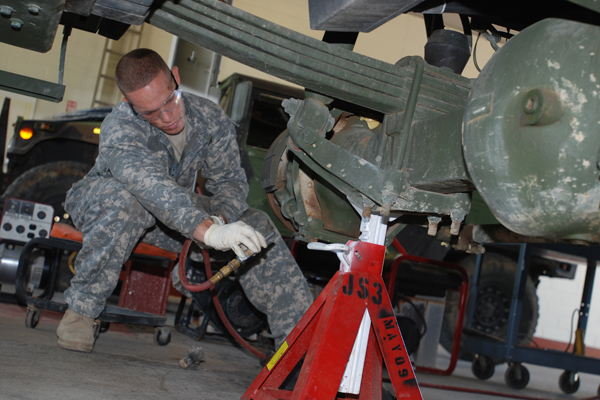You will continue to expand your new vocabulary with medical terminology, and learn how to describe the different injuries you may see. You will also learn about the trauma system itself- and when it is important to transport patients to a trauma center. Then we will dive into specific injuries based on what part of the body... Cared for elderly clients with disabilities, prepared meals, bathed, ran errands, companionship, etc. The eight most common skills based on Home Care Attendant resumes in 2022. Accompanied patient to medical appointments and administered medications.
Their painful conditions may make them react differently to situations. Most people who sign up for these tasks without being sharp end up being rude to the elderly and this may lead to avoidable curses. If you are going to be a carer, this should be at the top of your list.
People Skills and Communication
Specialized managers may inform patients regarding general preventative care practices as well as individualized care plans. Provided medication reminders to clients, helping them to follow prescribed schedules and dosages. Encouraged daily maximum self-reliance in hygiene, self administered medications, general nutrition, meal preparation, and daily care. Maintain s a safe, secure and healthy workplace Maintains patient confidence and protects patient care information confidential. Attend psychiatric and medical appointments as needed and attend meetings with social workers, physicians, guardians, and county workers.

Instead of including all these keywords on your resume, identify the keywords most relevant to the job you're applying to and include those. Provided other services such as laundry, light housekeeping, grocery shopping/errands, incidental transportation, medication reminders, and grooming. Delivered non-medical home care and elder companionship services to support senior citizens with independent living. A caregiver has to conduct some housekeeping tasks to ensure their patients have a conducive environment for their recovery.
A Right Caregiver Should Be Dependable On
They also need to listen in more ways than one — they need to be observant and look out for signs of depression, anxiety or other illnesses. For health practitioners, having knowledge of treatment protocols is not enough. In order for the treatment to be effective patients must be empowered to implement therapeutic approaches in their lives. In this course, you will learn about health coaching, which is an effective method for helping patients change their behaviors. Health coaching uses a blend of evidence-based strategies, interventions and communication to actively...

Worked directly with hospice nursing/case management to identify appropriate equipment needed for patient care. Support in discharge planning, working closely with the resident, family, and home health agencies for assistance. Provided home health care for the elderly and disabled in their own homes, while recovering from surgery or long-term care.
Vital Signs
These moods might cause your client to become uncooperative when it comes to eating, drinking or even bathing. If you are a bright, positive person, you are more likely to soothe your client and elicit cooperation. It’s also been proven that positivity creates a domino effect, improving people’s mental and physical wellbeing. As a carer, you need to have empathy and put yourself in your clients’ shoes, but at times, this can take a serious emotional toll. Carers can end up taking their work home with them, and finding a delicate balance to maintain mental wellness may be difficult, taking even years to master.
Helped with meal preparation, medication reminders, light housekeeping Doctor appointments and other miscellaneous errands. Provided companionship and conversation, stabilization, and assistance with walking, and providing medication and appointment reminders for assigned patients. The second most common hard skill for a home care attendant is home health appearing on 16.4% of resumes. A right caregiver should be creative to avoid boredom between the patients during their leisure times. It is one of the professions, and creativity is vital to keep the patients happy.
Essential Home Health Care Skills For Your Resume And Career
Collaborated with multidisciplinary team to ensure quality patient care, continuity, and timely discharge. Refer patient to physical therapist, speech pathologist, occupational therapist and medical social workers for those requiring specialized skills. Demonstrating that you take a professional approach to your job will set you apart from other candidates for a care worker role. Working in care requires a drive to provide the highest standards of care in accordance with moral and ethical codes, as well as respect for care home residents. We’ve all heard the saying ‘laughter is the best medicine’ - and while technically this isn’t always the case, a cheerful, happy and friendly disposition works wonders in a care environment. Making care home residents smile or laugh might just be the highlight of their day; whether it’s a joke to distract them when they’re feeling down or a shared experience that cheers them up.

And a 2020 report by the National Alliance for Caregiving and AARP found that 26% of caregivers had difficulty managing their stress. If you’re ready to pursue a fulfilling career in health care and put your natural empathy or other soft skills to good use, request more information about Carrington’s medical programs. At Carrington, your faculty, advisors, and the Career Services department can all help you identify areas to work on so you can have a successful career in health care.
Provide In-Home Care medical and non-medical support services at the home of the senior. Zippia allows you to choose from different easy-to-use Home Care Attendant templates, and provides you with expert advice. Using the templates, you can rest assured that the structure and format of your Home Care Attendant resume is top notch. Choose a template with the colors, fonts & text sizes that are appropriate for your industry. Assist and Gives emotional support to the patient and encourages independence in the patient as allowed in Patient Care Plan.

You need to listen and intuit at times, while respecting their wishes and preferences. Some clients will require careful communication, such as patients with dementia. There are plenty of resources online that talk you through how to communicate with someone with dementia. Bear in mind that you will need the ability to alter the way you talk depending on the particular needs of the client. Big data is transforming the health care industry relative to improving quality of care and reducing costs--key objectives for most organizations.
Provide home occupational therapy services to home based patients with various disabilities. Provided quality customer service, dispensed medication to patients and took patients vital-signs. Performed marketing functions, home health care nursing functions, and case management for residents in a HUD subsidized senior facility. A real drive to do the job often makes all the difference and is sometimes valued more highly than qualifications and training. A good listener is someone who can pay attention and understand what another person is saying.
You will need to accompany them to the doctors and empower them to be as independent as possible. You can’t ever let those you care for feel embarrassed or ashamed. If you are truly passionate about your career as a carer, you are more likely to do it well and with the necessary degree of compassion. Stress is a part of everyday life for many carers and it can seriously affect their health if not handled well. In fact, extreme pressures mean that, during recent years, care agency staff are leaving the profession at an alarming rate. The eight most common skills based on Home Health Care resumes in 2022.
Palliative Care Always is a specialization for health care practitioners, patients and caregivers. We’ve designed this specialization to demonstrate how palliative medicine integrates with patient care, and to help you develop primary palliative care skills. This course should be taken after the Symptom Management course and continues building your primary palliative care skills – communication, psychosocial support, goals of care, and symptom management. You will explore transitions in care such as survivorship and hospice. You will learn how to create a survivorship care plan and how to best support a patient. The course also covers spiritual care and will teach you how to screen for spiritual distress.

















